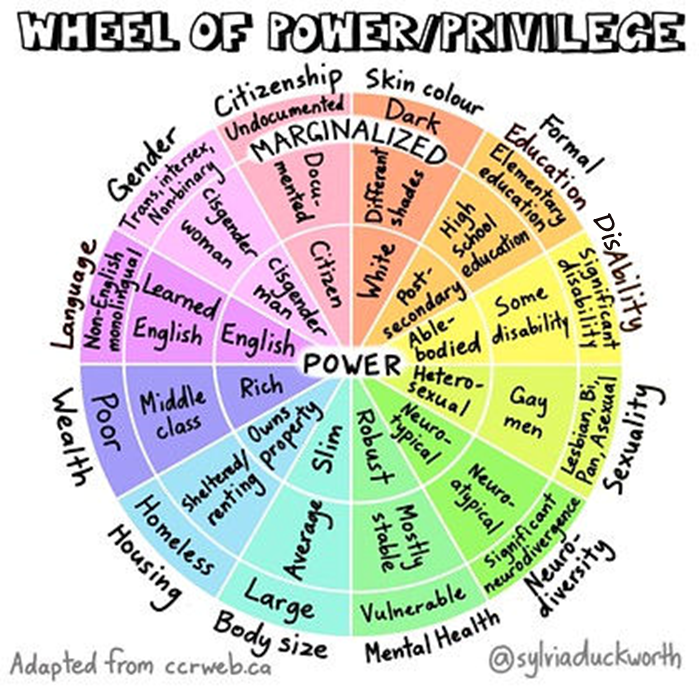Hello from the Urban Institute’s Community Engagement Resource Center (CERC)! We’re Elsa Falkenburger and Lauren Farrell, CERC’s director and deputy director. We spend our days visioning, planning, and acting to make research and evaluation more equitable and more rooted in community knowledge. Today, we want to build off Elizabeth DiLuzio’s great overview of participatory evaluation and share some tips on how researchers and funders can prepare for participatory evaluation, with equity as the goal.
Participatory evaluation shifts how we define success, measure progress, and accomplish the evaluation from outside researchers to the people directly involved in or affected by a program, initiative, or policy. People with local knowledge and personal experience become the evaluators, rather than the evaluated.
We hear a lot about what it takes to train community members to take part in evaluation. One often-missed consideration is the preparation required for researchers and funders to conduct evaluation that contributes value to—rather than extracts from—communities. Here are our tips on how researchers and funders can prepare for equitable participatory evaluation.
- Understand your positionality. Positionality is the combination of all our identities—our race and ethnicity, gender, sexual orientation, age, education, income, family structure, employment status—that affects how we interact with other people, experience life, and access society. Our positionality is connected to our social and economic power. To share and disrupt the power dynamics we exist within, we must first understand the power we hold as individuals.
Sylvia Duckworth’s identity chart can help you understand your own positionality:

- Respect lived experience as expertise. Communities already have the knowledge researchers seek, and community engagement recognizes that expertise. You can respect this expertise by compensating community members at the same rate as other experts and creating processes for joint decision making.
- Prioritize mutual benefit and power building. Traditional research extracts information from communities, without benefiting the community itself. In contrast, mutuality is when all partners gain something from the research. You can ask your community partners what they’d like to gain from the evaluation or partnership and share resources to support their existing work rather than increasing their workload with new evaluation tasks.
- Embrace the unknown (make a plan, revise the plan). Ever heard “life is what happens while you were busy making other plans?” This applies to evaluation too. Participatory evaluation is iterative. If you remain flexible and adapt your plans, you can make sure you don’t miss the lessons found in the process, a different outcome, and external factors.
- Learn about community history. Develop an understanding of the community grounded in its history, issues, and people. Learn about past research or governmental harms and ask how you or your organization can repair those harms. Be clear about your plans to create a different, reparatory experience. In doing so, you could offer resources to support community partners in the long term.
- Focus explicitly on racial justice. Community engagement is rooted in equity. To nourish those roots, focus on racial equity, which happens through internal, interpersonal, and structural practices to identify where white supremacy shows up. Who is affected by the issue you plan to evaluate? How is power distributed in the community? In what ways does structural racism inform the project team’s understanding of the community’s experiences?
Participatory evaluation is a key element of community-engaged methods that promises a more equitable approach to evaluation. But for it to be equitable, we have to be prepared.
Rad Resources
- CERC Positionality Toolkit
- Collective Power Framework and Indicators
- Creating a Historical Timeline
- Fostering Partnerships for Community Engagement
The American Evaluation Association is hosting Urban Institute week. The contributions all this week to AEA365 come from staff at the Urban Institute, a nonprofit research organization that provides data and evidence to help advance upward mobility and equity. Do you have questions, concerns, kudos, or content to extend this AEA365 contribution? Please add them in the comments section for this post on the AEA365 webpage so that we may enrich our community of practice. Would you like to submit an AEA365 Tip? Please send a note of interest to AEA365@eval.org. AEA365 is sponsored by the American Evaluation Association and provides a Tip-a-Day by and for evaluators. The views and opinions expressed on the AEA365 blog are solely those of the original authors and other contributors. These views and opinions do not necessarily represent those of the American Evaluation Association, and/or any/all contributors to this site.
